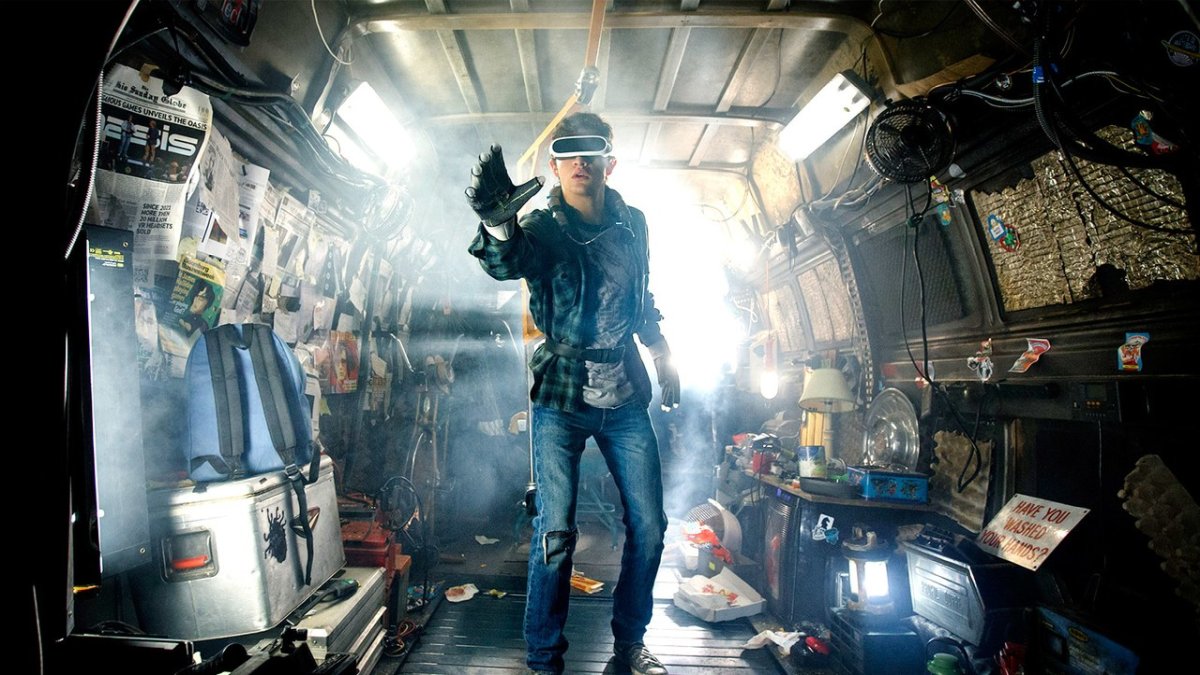
Books on metaverse are helping to discover the complexity of the world of tomorrow.
We collected the best metaverse books, both fiction and non-fiction to introduce you to this epic vision, maybe the vision of our future.
What Metaverse Means?
The Metaverse is a new, three-dimensional layer atop the Internet. It is a virtual world that people can access and interact with using avatars.
Metaverse means a virtual world that takes place in a computer simulation and includes certain virtual assets and goods. Like use avatars, virtual tools, places, skins or any other equipment.
Some of the most popular metaverse applications, games or platforms at the moment:
- Second Life (PC & Mac) since 2003
- Minecraft (PC & mobile game)
- Roblox (PC & mobile game)
- Axie Infinity, AXIE (crypto game)
- Fortnite (PC game)
- Decentraland (crypto)
- Sandbox (crypto game)
- Sorare (crypto game)
- Mobox (mobile game, P2E)
How Metaverse Connects to NFTs (Crypto Assets)?
Cryptocurrencies are virtual payment solutions for mainly virtual goods. The virtual assets in these metaverse games have some kind of value, mainly for their users. It could be represented with a cryptocurrency or NFT. Most of these metaverses have their own cryptocurrency where the items are NFTs (and are present on blockchain), like Axie Infinity Shards (AXS) in case of game Axie Infinity. These cryptocurrencies enable users to trade their virtual goods which could be also turned into real dollars at the end of the day.
Why Zuckerberg Turned Facebook into Meta?
Mark Zuckerberg has a really similar vision as the book author of Ready Player One (see below) in terms of future.
There are way too many people on earth and our planet turned suddenly into a crowded place. Virtual entertainment became extremely important, millions of people especially in the younger generations spent hours in a day in games like Fortnite, and not just for gaming, but also to keep connections and make friendship with the platform.
Facebook is a social media platform, but it badly failed in terms of making meaningful connections between people who have no relationship before. Meta would like to change that, it would like provide a more realistic space (platform) where people could meet and play with each other.
This vision requires a lot of new development, like new generation VR headsets, new 3D engines which could make a virtual space realistic and AR equipment that could link the real life with the virtual one.
At the end of the day it is more than a bullish project on Mark’s side. It requires years of development, and much more years for the users to adapt these equipments and platforms.
Finally let’s see our short list of books on metaverse:
Top 5 Non-fiction Metaverse Books
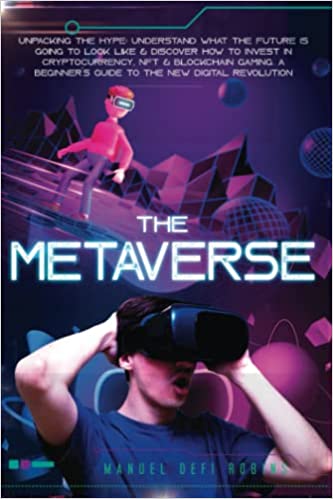
The Metaverse: Unpacking The Hype, by Manuel Defi Robins (2022)
The Metaverse is the next evolution of the Internet. If you want to succeed in business, then you must prepare yourself and your business for this all-encompassing reality. This book will give you a deep understanding of what it means to live in The Metaverse, how it will affect every aspect of our lives, and how to prepare for its impact on your company’s bottom line.
The Metaverse is a reality that is built on top of another reality. On the one hand, all virtual worlds are built on top of the physical world (just think about games like Second Life or World of Warcraft). On the other hand, we have our own digital environment (the internet) in which we live and use it to communicate, publish information and create content.
How will blockchain technology change this? How will it change lives? What opportunities lie in store for us?
In this metaverse book the author answers these questions, go into detail about how this technology works and what benefits it provides us.
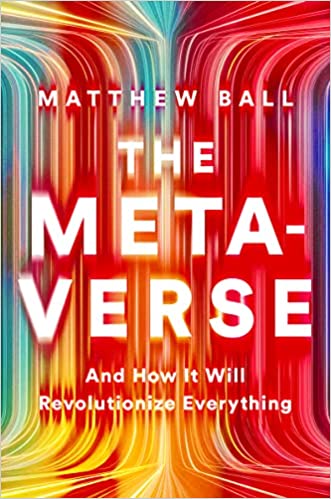
The Metaverse: And How it Will Revolutionize Everything, by Matthew Ball (2022)
The is an introductory work about this whole metaverse phenomenon.
The author claims that metaverse is the next step in the evolution of the Internet, moving from a web of information to a web of experiences. Venture capitalist Matthew Ball predicts that this new “Metaverse” will be the next wave of technological innovation, bringing an unprecedented level of value to our lives. The concept of metaverse will change our very definition of “reality,” influencing every industry and function.
The Metaverse is still in its early stages of development, but it has the potential to completely change the way we use the Internet. It would provide a much more immersive and interactive experience than the current Internet. You would be able to visit any website or online service in the Metaverse, and there would be no need for separate websites or apps.
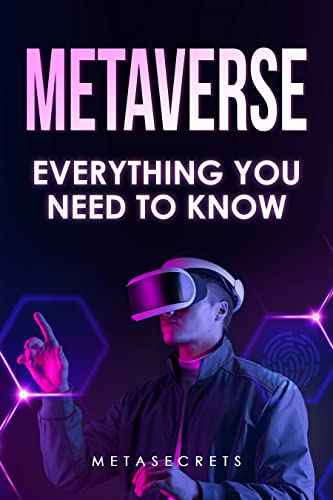
Metaverse: Everything You Need To Know: How To Take Advantage Of The Future Of The Virtual Economy. Strategic Guide, by Meta Secrets (2022)
This short (72 pages) book will explain the probable uses of Metaverse, how the history of Metaverse looks like, the possibilities and future of such a virtual worlds, and more.
The currently available metaverse applications offer a variety of opportunities, this book attempts to guide us where to start. If you are looking for very basic information this self-published metaverse books could be a good start.
I personally think that this non-fiction book on metaverse includes essential information about this whole concept, but good only for those who aren’t tech heavy.
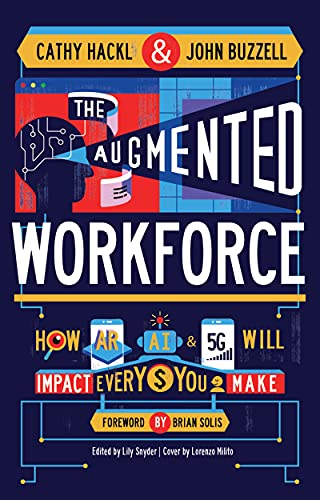
The Augmented Workforce: How Artificial Intelligence, Augmented Reality, and 5G Will Impact Every Dollar You Make, by Cathy Hackl and John Buzzell (2021)
A HR focused approach how metaverse and home office will impact our future working habits. Virtualism couldn’t be stopped and this is what Facebook (Meta) also visualizes, bending border between the virtual and real office space.
This is the future of technology, and the businesses that embrace it will be the ones to succeed in the future. At the moment we connect via phone with each other, there is no more “end of work hours”. But this will further change in the near future. Hyper-connectivity and AR technologies will play big role in the future work places.
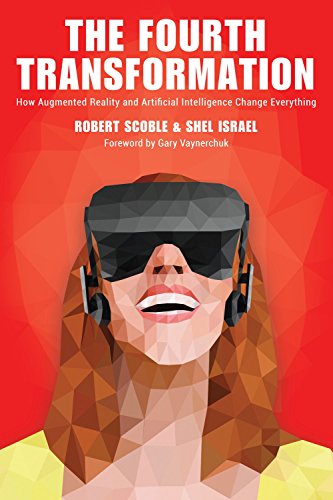
The Fourth Transformation: How Augmented Reality & Artificial Intelligence Will Change Everything, by Robert Scoble and Shel Israel (2016)
Ten years from now, the center of our digital lives will no longer be the smart phone, but gadgets that look like ordinary eyeglasses: except those glasses will have settings for virtual and augmented reality. What you really see and what is computer generated will be mixed so tightly together that we won’t really be able to tell what is real.
Scoble and Israel have written this book in the hope that it will serve as a business thinker’s guidebook to the near future. They hope readers will walk away understanding saying: “Oh, I see what they’re talking about now–thanks for explaining that part to me!” Sometimes it’s helpful to hear someone else talk about things we don’t quite get just yet! They know and understand things and they aren’t afraid to share so we ought to listen up.
Top 4 Fiction Metaverse Books
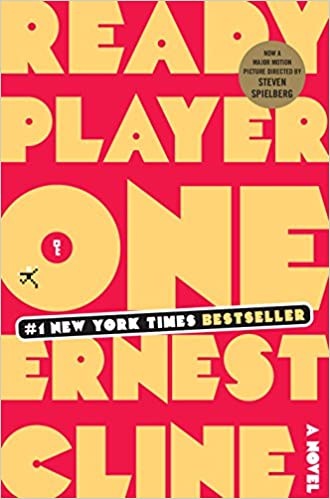
Ready Player One & Two, by Ernest Cline (2011, 2020)
Ready Player One was really fun and interesting, full of 80’s pop culture references, but I did get a little bogged down at the beginning. I enjoyed the story and really liked the way it was told. The story exists not only in form of a book but movie as well.
The concept of Oasis (the name of the metaverse in the book) was shockingly realistic, and played a huge part in the story. The main character, Wade and his friends were well developed, both in terms of emotions and personal goals. The story in the first book focuses mainly on small quests for the protagonists, in book two the metaverse concept was further developed and the author put together a great plot for this new episode.
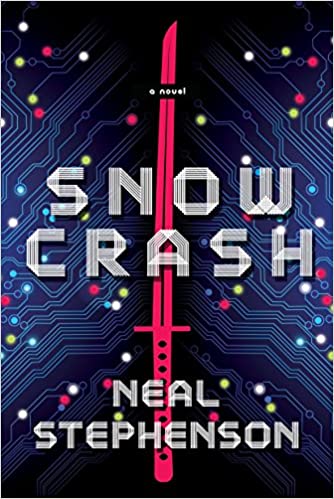
Snow Crash, by Neal Stephenson (2000)
In Snow Crash, Neal Stephenson combines the visceral power of the action-adventure story, the intellectual appeal of futuristic speculative, and the outlaw sensibilities of the computer hacker to create a maturing vision of an America where realities collide.
Set in a time when the United States is at war with a fundamentalist Islamic republic called the Caliphate, the novel follows the intersecting lives of Hiro Protagonist, a motorcycle-riding warrior-hacker, and Y.T., a teenage skateboarder and a brilliant but reckless hacker caught up in a war she does not understand.
I couldn’t put Snow Crash down and was in awe of how relevant this book is this day in age. The book’s prescient vision of a future dominated by two mega-corporations feels all too real given the current state of the world. And while the book’s action takes place in a virtual world, it has plenty to say about our real world too.
If you’re looking for a mind-bending science fiction novel that will leave you thinking about the future of our world, then Snow Crash is a must-read.
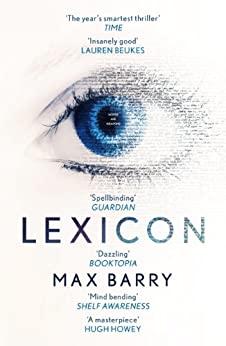
Lexicon, by Max Barry (2014)
Lexicon is a novel that shows how words have power over our minds and bodies well beyond what we might think. In a world where words influence people’s thoughts and actions, it impacts how we communicate with each other in daily life. Lexicon explores the true human nature, vulnerability, and our desires for privacy. This novel causes you to think about the way society treats technology at large, and how much power it has to change us just as much as we want to change.
I think in this fictional metaverse book, the post-apocalyptic theme, the story and the theory behind were all unique and insightful. We could all learn a lot from this novel.
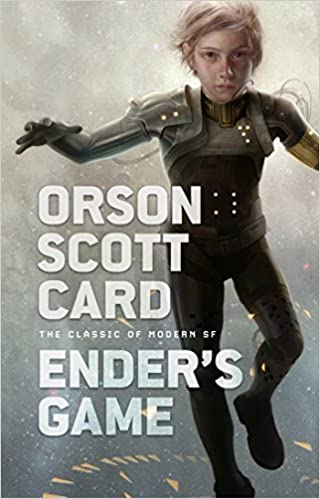
Ender’s Game, by Orson Scott Card (1985)
Recruited by officials for intensive training, Ender begins his life on Earth in an environment full of surprises. He thinks he is merely joining the military academy at Ender but instead he has been recruited for Command School, a temporary battle training simulation located on Earth. Once on Earth, Ender trains rapidly and proves to be exceptionally talented in his new home!
Orson Scott Card’s original story strongly connects to the metaverse concept. The military training program, where the candidates have to successfully solve several military simulations is so real and lifelike that from readers points of view you couldn’t identify the difference between simulation and reality.
After three months of rigorous training, some of the cadets begin to ask, what lies beyond Command School? After all it’s only a school meant to prepare them for real world circumstances.
Future of Metaverse Concept
The best metaverse books will help to learn more about the metaverse and its history. You will learn that the phenomenon has much broader history and its not entirely new.
With the ever improving VR technologies today we stepped one step closer to become a global reality. But this is what we really want?
Social implications of Metaverse
In Ernest Cline’s book the concept of OASIS is frighteningly realistic. Poor people grinding for a better living, not in real life but in the virtual one. Having a comfortable life in the real world is not even possible, because the Earth looks like a slum.
For me Mark Zuckerberg and the founders of OASIS (James Halliday and Ogden Morrow) are somewhere the same in my mind. It’s not a fact, but we are heading to a dystopian future, where luxury isn’t for the majority. In 2022 the global bottom 50% owns 2% of wealth. That means one out of two people is living in deep poverty in a global scale.
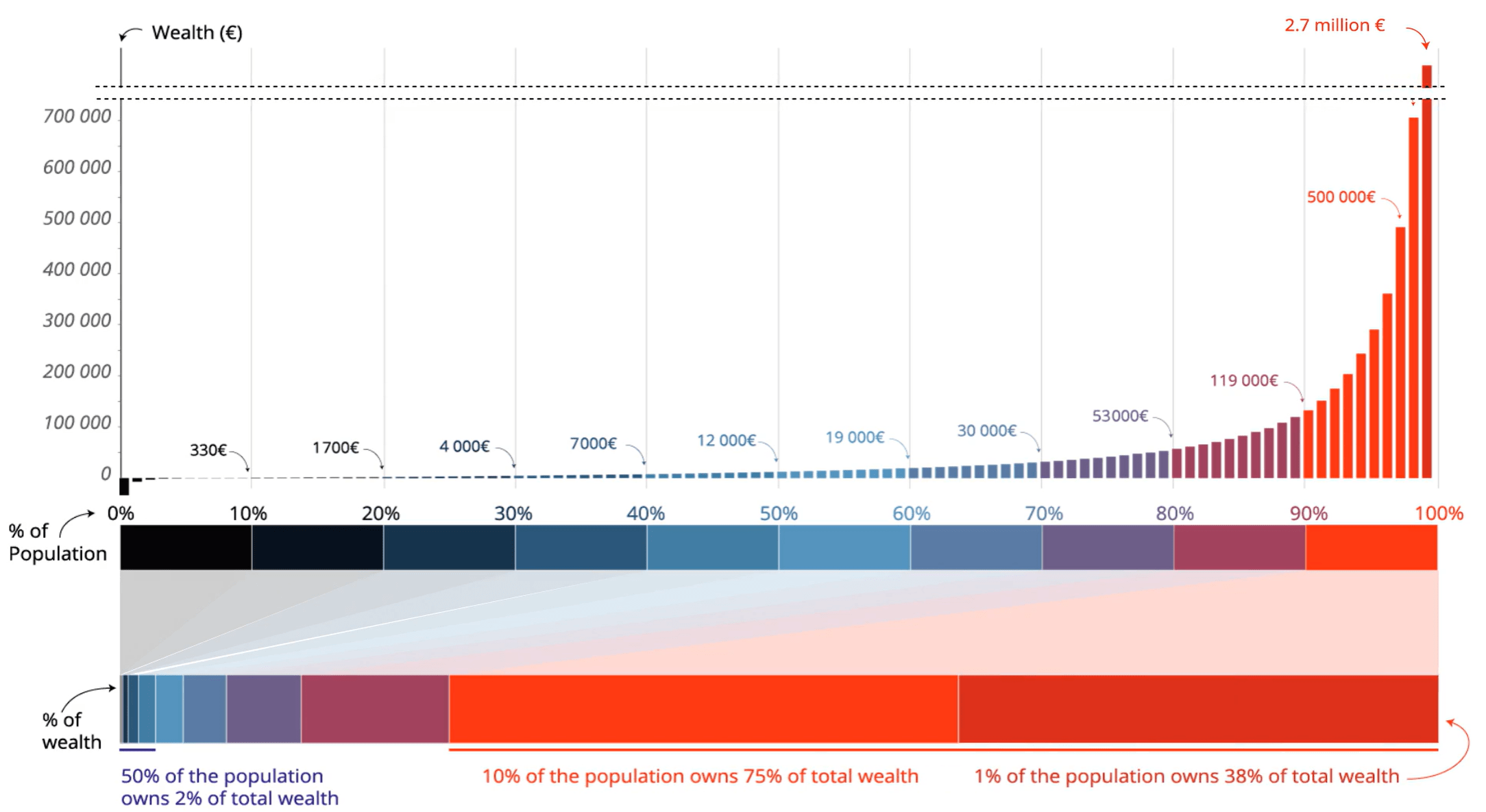
In 2022, 8 billion people will live on the planet. That means the life for half of them is simply hopeless.
In this context metaverse and games as general could offer an escape from real world, which may be a good thing, but certainly not a solution in long term.
The Challenges ahead of Metaverse
Technological challenge is clear for those who are working with VR tools.
While VR has been around for a while, it’s only now that we’re seeing it truly come into its own. The headsets are becoming more and more realistic, and the games and experiences more immersive. But there’s one major problem with VR headsets: they’re not completely wireless (Challenge 1).
Sure, some of them are tethered to a PC or console via a wire, but even the wireless ones require a connection to some sort of power source. This can be a major pain point for users, as it limits their movement and freedom while using the headset. Not to mention, it can be easy to trip over wires and pull the headset off entirely. With the improvements of battery and Bluetooth and wireless technologies this will be solved, but it took much more time than it was expected back in 2010s.
The other challenge of the metaverses is the space, the virtual world, the software itself (Challenge 2). We need a killer application that will be more popular than any other on the market, or we need to connect some of these application, so our avatar could be seamlessly enter into different metaverse apps.
As in case of Web 3 and Cryptos there are many possibilities and new software developments in progress, but there will be one key technology that will rule everything else. In case of crypto we are in the same situation, there are already way too many crypto tokens and networks at the moment (Bitcoin, Ethereum, Tether, Binance Coin, XRP, ADA etc.), the market needs to filter out the “killer” one. As it happened in case of social networks years before.
The same will happen in case of metaverse apps, there will be many concurrent at the very beginning, but at the end of the day only some of them will remain.
We hope you will find the perfect match among these metaverse books! If you are looking for more gaming related books, check out our NFT gaming books selection.
